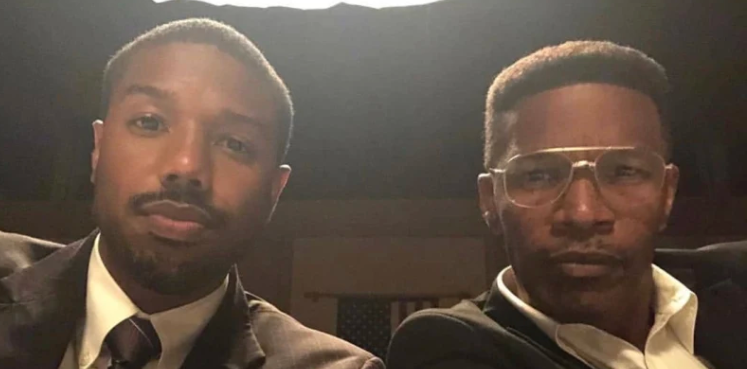So much news about Destin Daniel Cretton’s “Just Mercy,” which played last night in Toronto to standing ovations and will be an Oscar nominee for Best Picture.
Warner Bros. has in its collection of films this season a film some have been calling the “Green Book” of this year. There is some but not a lot of accuracy there but “Just Mercy” concerns civil rights in a way that this past year’s Best Picture winner only glanced.
In 1986 a young Harvard trainer lawyer from Delaware named Bryan Stevenson went to Alabama to work with men unjustly placed on death row. One that stood out was Walter McMillan aka “Johnny Dee,” who’d been railroaded by the local police into a conviction for a murder he couldn’t have committed. Stevenson even managed to get the key witness, one Ralph Meyers, to recant his testimony and still could not get a new trial for McMillan. It was when he went to “60 Minutes” that light was shone on this debacle of justice. McMillan finally was set free.
Cretton’s film tells this seven year horror story so effectively that even though you can guess the ending you will nevertheless cry when Jamie Foxx’s journey as Johnny Dee comes to an end. The journey is everything, as Michael B. Jordan, as the crusading Stevenson, holds fast to his ideals and integrity, never letting go until he reaches his destination. Jordan is lead, Foxx is supporting, and these two are like superheroes without capes. “Just Mercy” feels in many ways like “Rocky.”
There are also two supporting performances that won’t get awards, but should be rewarded and cited as memorable and indelible. In many ways, the whole movie rests on the work of Tim Blake Nelson, who sells us the redneck, horrid Meyers as the linchpin of Stevenson’s re-opening of McMillan’s case. Nelson brings a humanity to a grizzly little man with beauty and grace. The same can be said of Rob Morgan, who plays Herbert Richardson, another man on death row whom Stcvenson tries to help. Morgan, who made such an impression in “Mudbound,” and works on TV continually, lends the film a textured gravitas and a deeply devastating moment.
Now, Oscar winner Brie Larson is in this movie, in a secondary role as the white woman in Alabama who assists Stevenson, takes him in, sets him up to run his office. It’s not a big role, but Larson is helping out Cretton, who gave her her big break in “Short Term 12,” the wonderful indie film that also launched Rami Malek. Larson makes the most of her job, and she’s always a delight to see on screen. If this movie had been made 10 or 20 years ago, her character would have been the point of view.
The real Stevenson, who’s only about 60 now, will become the focus of the publicity for the movie. He remained in Alabama after this episode to continue fighting for the wrongly convicted and poorly represented. This is amazing, and he deserves all the praise he gets. (I don’t want to hear one word against during Oscar campaigning.) His work reminds me of Tom Mesereau, famous for being Michael Jackson’s defense attorney, who has worked in Alabama for years doing the same thing pro bono.
What I don’t understand is why anyone of color still lives in Alabama. It is boiling pot of racism, violence, and hatred. There is no redeeming feature of this state. A hurricane might be the solution after all. During my lifetime the only stories that have emerged have been about redneck whites harassing or harming black people. Every new movie like this is so important to illumine our embarrassing history in the South.

